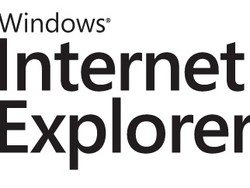Exclusive interview: Microsoft talks IE8
The complete Internet Explorer discussion

TR: Is there a danger that by supporting older versions you are in effect not able to provide a cutting edge product?
JC: I don't think that's the conclusion we would draw. We have a more significant investment that we need to make [than our rivals] because our charter is not to just embrace the handful of people who want the latest.
We want to embrace the whole range of internet users, but we also drive out significant innovation and we do consistently deliver the best of both worlds.
We provide a fantastic set of experiences for anyone using any one of our versions of IE as well as folks who are looking for the latest and greatest. They can come to Microsoft for innovation. Things like accelerators, like WebSlices, like click-jacking, no else has cross-site scripting; I can go through others – the smart taskbar, the highlight of the domain name, the grouping of tabs…
TR: IE8 will apparently come with a switch that turns IE off as the default browser. Is that something that worries you?
JC: I guess the simple answer is that fundamentally Windows 7 is still in development…there are certain topics of conversation to be had in terms of how it manifests itself and we are working through all of that and will have more as we get closer to the launch.
TR: Okay, so speaking hypothetically, if a future version of Windows did not have IE as the default browser, do you believe that puts more pressure on you to provide a product that people will choose over other browsers?
Sign up for breaking news, reviews, opinion, top tech deals, and more.
JC: What I would say on the question of choice is that choice exists right now. Fundamentally we see market share movement in the UK market share of plus or minus a per cent a month and so it's a highly dynamic movement. The ability for choice is there today.
TR: I would say about that moment that people move away from IE they don't opt to go back – people choose to move away from a default as a rule…
JC: We have people using everything from IE5 to IE8 right now, so fundamentally we have people choosing to go from IE6 to IE7 and so on, so people are making the decision to go to IE - that's a conscious download for those people.
In the UK we have 80 per cent of browser share, so if you ask are more people moving away or moving to [IE] then someone looking at that share would draw a logical conclusion that the movement goes more in one direction than the other..
TC: But it's going down – it's 80 per cent and declining…
JC: It's going up and down in the last two months, we've seen both…
TR: But you're down year on year.
JC: Year on year we're down slightly and I do think that that's a sign of a competitive market.
IE7 is getting on in age. For a lot of people back on IE6 or IE5 then [those products] are certainly getting on and you've got a lot of competitive offerings out there.
We are developing and we think IE8 is a product that people will choose to go to and our job is to get people on to it because we think that when people get on to it they are going to love this product and so fundamentally that's our approach.
Patrick Goss is the ex-Editor in Chief of TechRadar. Patrick was a passionate and experienced journalist, and he has been lucky enough to work on some of the finest online properties on the planet, building audiences everywhere and establishing himself at the forefront of digital content. After a long stint as the boss at TechRadar, Patrick has now moved on to a role with Apple, where he is the Managing Editor for the App Store in the UK.
